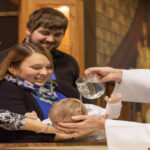What is Seventh-day Adventists church, and what do believe?
What is Adventism? What is a biblical view of the Adventists?

What is Adventism? What is a biblical view of the Adventists?
The term “advent” literally means “arrival.” Many Christians commemorate and celebrate Advent in anticipation of Christmas, recalling Christ’s birth as a baby. The future return of Christ is frequently referred to as the second coming or the second advent.
An Adventist is broadly defined as anyone who believes that Christ will return. The label Adventist, on the other hand, is usually reserved for people or groups that believe Christ will return at any time, or who at least allow for the possibility. Postmillennialists and believers in a post-tribulation rapture would not fall under this category. However, believers in a pre-tribulation rapture would.
Advent Christians are typically orthodox, with the exception that they teach “soul sleep”. Which means that when a person dies, he “sleeps” until Christ returns. In other words, the soul is not completely aware of anything till it is reunited with the revived body at the second advent or. In the scenario of unbelievers, returned to life for judgment. This teaching is false since the Scriptures teach that for the believer, being absent from the body means being present with the Lord (Philippians 1:23).
What is the Seventh Day Baptist Church?
Seventh-day Adventism is a Christian movement that believes that worship services must be held on the “seventh day” (the Sabbath) rather than on Sunday. There appear to be various “degrees” of Seventh-day Adventism. Except for the Saturday Sabbath, some Seventh-day Adventists think exactly like orthodox Christians. Other Adventists, on the other hand, go far further into erroneous doctrine.
Adventism, a 19th-century movement that awaited Jesus Christ’s imminent entrance (or advent), is the foundation of Seventh-day Adventism. The Adventists were also known as Millerites because their organization was begun by William Miller, a false prophet who promised Jesus would return in 1843 or 1844.
The Millerites dissolved in dismay after Miller’s forecast of Christ’s second coming failed to come true; this event was referred to as the “Great Disappointment.” However, a number of Miller’s supporters claimed to have seen visions to explain the failed prophecy. Instead of coming to earth, Jesus entered the heavenly temple thus, Miller was correct, they maintained, but his prophecy had a spiritual rather than physical fulfilment.
Ellen G. Harmon, a 17-year-old seer who covered for Miller, received her first of 2,000 reported visions in a prayer service shortly after Miller’s disgrace. Ellen’s concept quickly became a beacon of hope for disillusioned Millerites. She brought together Adventist divisions and became the spiritual leader of a new religious movement.
FAQs on Seventh-day Adventists church
What distinguishes Seventh-day Adventists from Christians?
Seventh-day Adventists diverge from conventional Trinitarian Christian denominations in only four areas of belief. These are
- The Sabbath day
- The belief in the heavenly tabernacle
- The status of Ellen White’s books, and
- The second coming and millennium doctrines.
Do Seventh-day Adventists have faith in Jesus?
Evangelicals and Adventists believe that salvation is obtained solely through faith in Jesus Christ, and many of their early members came from other similar religions, such as Methodism, or even from Roman Catholic traditions. The contemporary Seventh-day Adventist Church considers itself a Protestant denomination.
Do Seventh-day Adventists believe in Speaking in tongues?
Seventh-day Adventists think that spiritual gifts like “speaking in tongues” are utilized to communicate the truth to persons speaking different languages, and thus are dubious of tongues as used by charismatic and Pentecostal Christians today.
What is forbidden in the Seventh-day Adventist faith?
Because Seventh-day Adventists are “temples of the Holy Spirit,” they are encouraged to eat the best diet possible and many followers are vegetarians. They are also barred from consuming alcohol, smoking, or using illegal substances. Equality: The Seventh-day Adventist Church does not practice racial discrimination.
Conclusion
Many core Protestant Christian doctrines are shared by Seventh-day Adventists, including acknowledgement of the Bible’s authority. Recognition of human sin and the need for redemption, and confidence in Christ’s atoning work.
Get more prayer points, daily inspirational posts, and a pastor’s biography here at Dailygam.com












